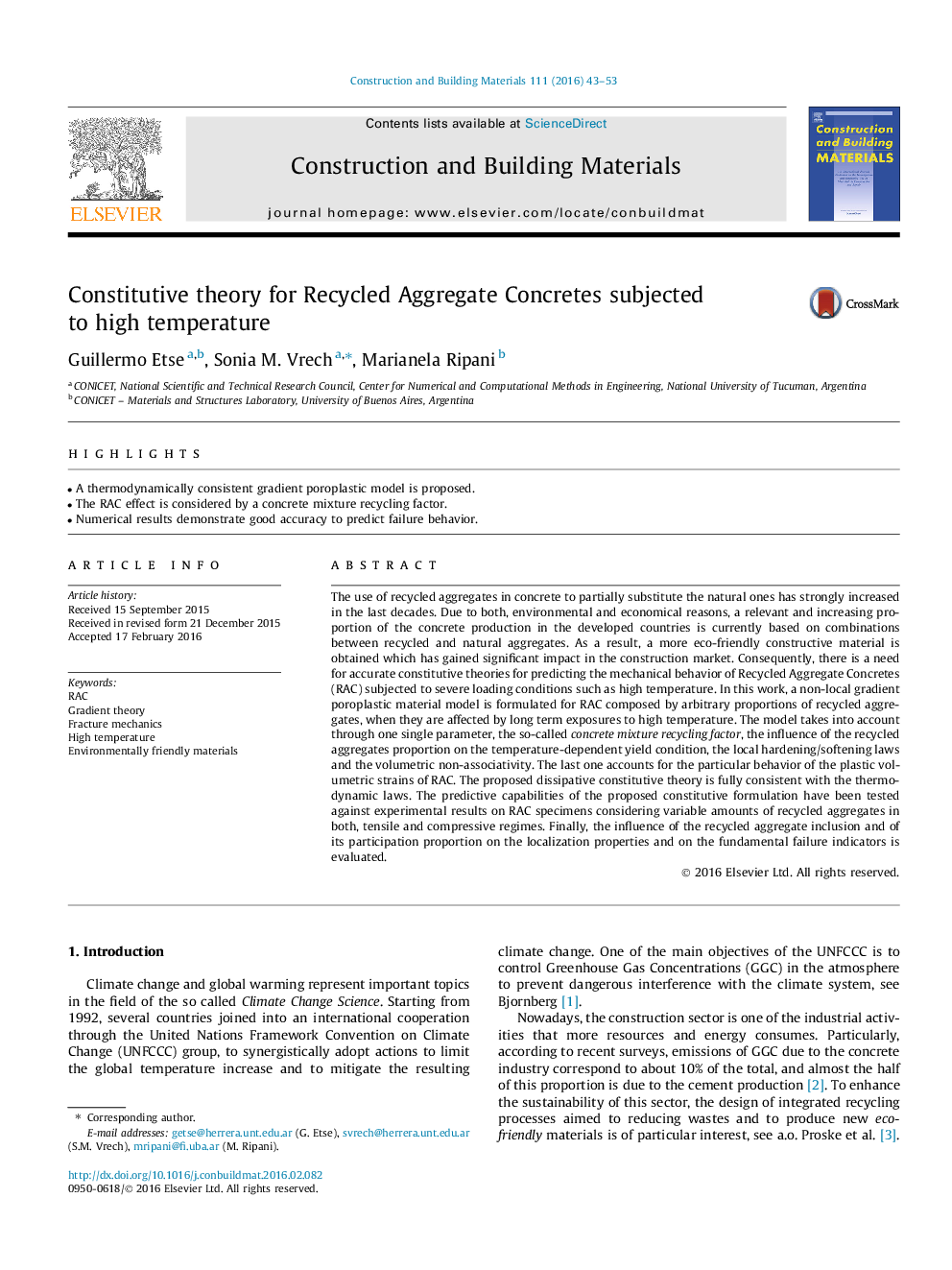| Article ID | Journal | Published Year | Pages | File Type |
|---|---|---|---|---|
| 6719054 | Construction and Building Materials | 2016 | 11 Pages |
Abstract
The use of recycled aggregates in concrete to partially substitute the natural ones has strongly increased in the last decades. Due to both, environmental and economical reasons, a relevant and increasing proportion of the concrete production in the developed countries is currently based on combinations between recycled and natural aggregates. As a result, a more eco-friendly constructive material is obtained which has gained significant impact in the construction market. Consequently, there is a need for accurate constitutive theories for predicting the mechanical behavior of Recycled Aggregate Concretes (RAC) subjected to severe loading conditions such as high temperature. In this work, a non-local gradient poroplastic material model is formulated for RAC composed by arbitrary proportions of recycled aggregates, when they are affected by long term exposures to high temperature. The model takes into account through one single parameter, the so-called concrete mixture recycling factor, the influence of the recycled aggregates proportion on the temperature-dependent yield condition, the local hardening/softening laws and the volumetric non-associativity. The last one accounts for the particular behavior of the plastic volumetric strains of RAC. The proposed dissipative constitutive theory is fully consistent with the thermodynamic laws. The predictive capabilities of the proposed constitutive formulation have been tested against experimental results on RAC specimens considering variable amounts of recycled aggregates in both, tensile and compressive regimes. Finally, the influence of the recycled aggregate inclusion and of its participation proportion on the localization properties and on the fundamental failure indicators is evaluated.
Related Topics
Physical Sciences and Engineering
Engineering
Civil and Structural Engineering
Authors
Guillermo Etse, Sonia M. Vrech, Marianela Ripani,
